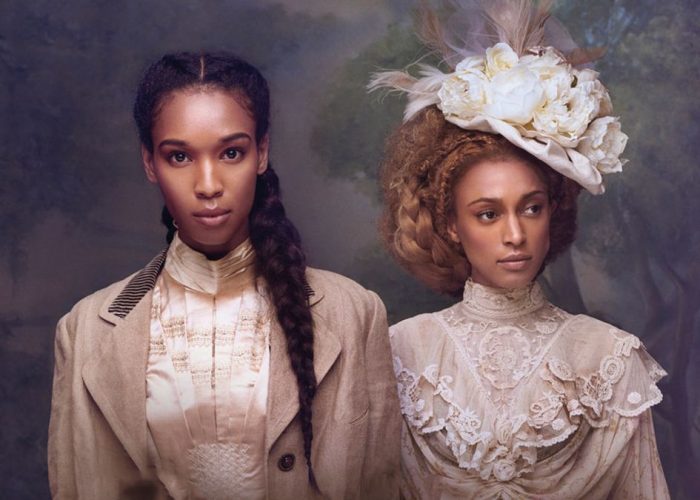The world can be utterly bleak nowadays. A government that seems to actively hate health and science, an economy ruled by a handful of lying billionaires, and continued state-sanctioned violence against Black people have ushered in a modern dystopia. But as I finished Deathless Divide, Justina Irelands stellar follow up to her 2018 novel, Dread Nation, I found myself sighing with relief.
The world may suck, but novels can navigate similar situations and give you a measure of hope. In both novels of Irelands series, hope is found even in the worst situations, and given the characters are living in a dystopia far worse than our own that hope feels as soothing as a balm.
The Dread Nation novels (published by HarperCollins) feel extraordinarily timelydespite both being written well before the pandemic or the protests sparked by the killing of George Floyd. Theyre set in an alternate version of the U.S. where the dead rose at Gettysburg and the warm weather Confederacy was forced to concede to the Union to avoid being overrun by zombieswho tend to be more limber and lively in a temperate climate. In this world, slavery was promptly abolished, but rich white men are always going to rich white man and suggested that Black people might be less susceptible to zombie bites, and thus better suited to fight them.
In our world, slavery was traded for a vicious prison system whose cheap labor is overwhelmingly made up of Black people. In the world of Irelands novels, thats been traded for a law that demands every Black child must go to school and learn to put down the shamblers. Jane, the series primary heroine, has studied at a Maryland school for Black girls training to be bodyguards and attendants to white womencalled Attendants in their worldand she is very good at killing the dead.
Both books tackle similar themessuch as the ruthless exploitation of Black bodies, systemic racism, and pride winning over science. White men are so confident in their superiority they think they can build zombie vaccines in ways counter to traditional science procedures (which Jane is quick to point out), and theyre happy to test their unsubstantiated theories on Black people. Its a historical novel, so theres rampant skin-crawling racism, but the books are told from the Black womans point of view, and we spend the majority of our time with Black women and their friends and family.
The racism in the book usually feels like a warning. If even the nicest character drops a backhanded compliment drenched in 1880s racism you can expect theres a reason for it. In the real world, we watch the idiots and the awful folks seem to win, while in Irelands novels the bad inevitably get whats coming to them (and usually its a really gruesome zombie bite).
This version of 1880s America is an awful placemore apocalyptic than the world we inhabitbut theres a bright spot of hope at the center of Irelands novels, and Jane is one of the liveliest heroines in narrators Ive found in a book in a while. Similar to last years outstanding Gideon the Ninth, Ireland relies on a deeply funny, if unreliable, first-person narrator. Jane will lie to other characters in one breath and then admit the lie to the reader in the next. She builds herself up as a pragmatist, but you find a bold hero between the lines. Though Jane isnt always the best people reader and it can lead to her missing big clues about her companions.
In the second book, Ireland splits the narration between Jane and Katharine, a fellow student from the same Maryland Attendants school, and the voices are both incredibly distinct, different, and perfectly companionable. Jane is from the South, has darker skin, and no desire to mince words. Katharine is quiet about her origins, light enough to pass, and careful to the extreme with her words. The women are diametrically opposed, but able to read one another better than anyone around them. When Jane lies in one chapter, Katharine notices it in the next, and when Katharine thinks shes hiding her feelings, Jane observes them when we revisit her point of view.
The two women balance each other and their often Odd Couple-esque friendship is ultimately the heart of the series. While Irelands heroines can lack subtlety when interacting with other characters, the writer herself is much defter. She doesnt have characters talk about how important these women are to one anothershe shows it instead and explores how their wildly different personalities and approaches to the world can so easily compliment each other. The books are adventure stories set in a unique dystopia, but theyre also careful character studies and explorations of what love means when it isnt about family or romance.
Jane and Katharine might endure terrible injustices and absolutely bleak horrors in the middle parts of the books, but they also tend to survive and find love and measures of happiness, and crucially rare connections with their fellow survivors. This series is not out to provide solutions for the worlds ills; instead, it shows how we can find comfort and hope in the relationships around us. When we feel powerless to affect the massive changes we think we need to see in the world, those connections become vital. Solidarity and companionship are crucial in the lonely world of a dystopia.
For more, make sure youre following us on our Instagram @io9dotcom.read more
One of the Most Timely Novels of the Year Is About Black Women in the 1880s Hunting Zombies


